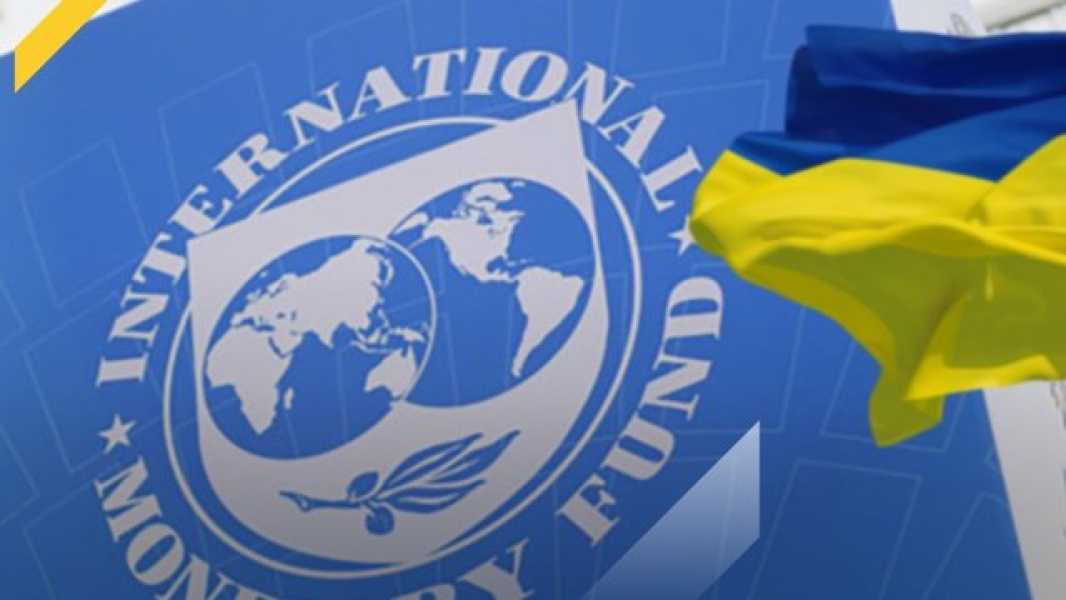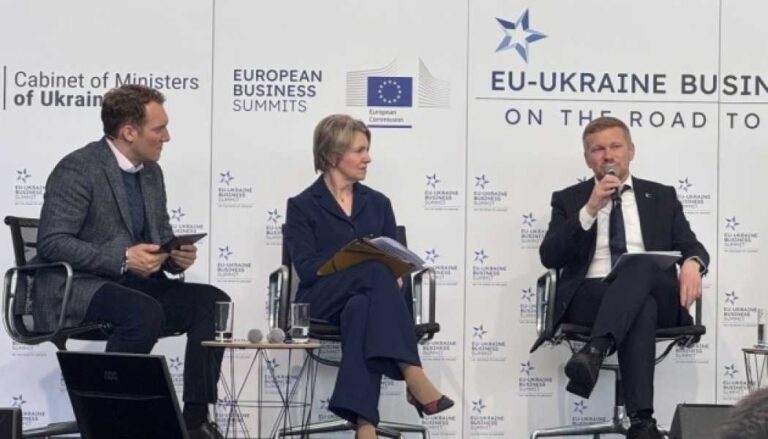Ukraine, IMF reach staff-level agreement on seventh EFF review
Facts Economy Sports Investments Diplomacy Regions Projects
Special topics:
Red Cross Ukraine Reconstruction Military Energy Open4business

The International Monetary Fund (IMF) and the Ukrainian authorities have reached a staff-level agreement (SLA) on the seventh review of the four-year, $15.5 billion Extended Fund Facility (EFF) facility. The agreement, subject to approval by the IMF Executive Board, opens the way for an eighth disbursement of approximately $400 million (SDR 300 million), bringing total disbursements under the facility to $10.1 billion.
“The results of the program implementation remain high. All quantitative performance criteria (QPC) were met as of the end of December, and agreements were reached on a number of policy measures and reforms aimed at maintaining macroeconomic stability,” the IMF press release on its website states following the work of the mission, which worked in Kyiv and Warsaw from February 20.
According to the report, the structural reform agenda continues to progress, with seven structural milestones achieved, one delayed, and firm commitments to advance other key reforms.
Previously, it was expected that Ukraine would receive $917.5 million following the seventh review.
“Given the revised profile of balance of payments needs in 2025, Ukraine has requested a change in the access phase under its EFF program, deferring IMF financing to future reviews while the overall size of the program remains the same.
“Taking into account the current needs of the balance of payments, the Ukrainian side asked the mission to change the structure of payments under the EFF program, and to transfer financing to future reviews,” said the Chairman of the National Bank of Ukraine (NBU) Andriy Pyshnyy, commenting on the reasons for the reduction in the tranche volume following the seventh review.
He confirmed that the overall volume of the program would remain at $15.5 billion.
“The 2025 budget envisages a deficit (excluding grants) of 19.6% of GDP and remains the basis for fiscal policy in the current year. It includes additional revenues from the increase in tobacco excise taxes, and adoption of this tax policy change is a condition for completing the review. Financing the large fiscal deficit will require significant and timely external support, especially from the G7 ERA initiative, to ensure macroeconomic stability. Responding to high fiscal risks will require preparedness for compensatory measures; in particular, broad-based, durable and effective revenue measures and accelerated implementation of Ukraine’s National Revenue Strategy (NRS),” the IMF notes.
“Restoring medium-term fiscal sustainability requires decisive reform action to mobilize domestic revenue, combat tax evasion, and improve the investment climate. Tax policy reforms should also be coupled with improvements in tax administration, with continued reforms of the State Customs Service (SCS) and the State Tax Service (STS). Restoring debt sustainability depends on this revenue-led fiscal adjustment and the continued implementation of the authorities’ debt restructuring strategy (where completing the review of the GDP pillars remains key). The upcoming 2026-28 budget declaration, due to be presented to parliament in June, will be an important opportunity to clarify both the context and strategic objectives of the medium-term fiscal strategy,” the report says.
“Given the risks of rising inflation, the recent increase in the NBU key rate is justified. Additional measures will be justified if inflation accelerates or inflation expectations worsen. The exchange rate should increasingly act as a shock absorber. Maintaining adequate reserves remains a priority, especially given the risks to the forecasts,” the fund added.
“The independence, competence and credibility of anti-corruption and judicial institutions must continue to be strengthened. The adoption by parliament this week of the law establishing the Supreme Administrative Court, a benchmark under the programme, is an important step in this direction. Swift adoption of the law will pave the way for the establishment of the court. Effective public investment management (PIM) is key to post-war recovery, reconstruction and growth against a backdrop of limited fiscal space and challenging demographic realities. To address these challenges, the Government of Ukraine is implementing a comprehensive PIM framework in line with international best practices,” the document says.
“The financial sector remains stable, but more needs to be done
Source: Source



